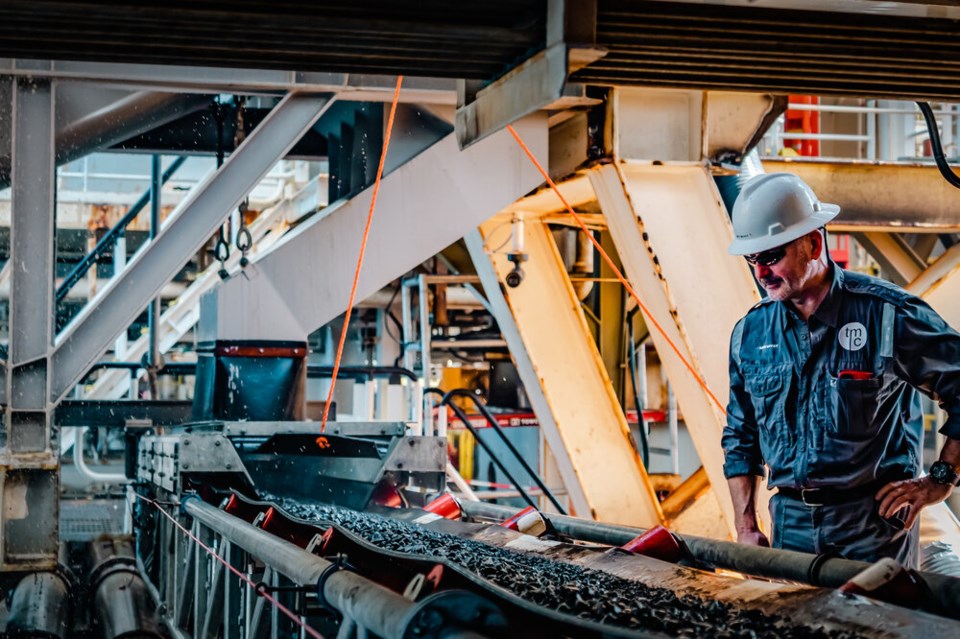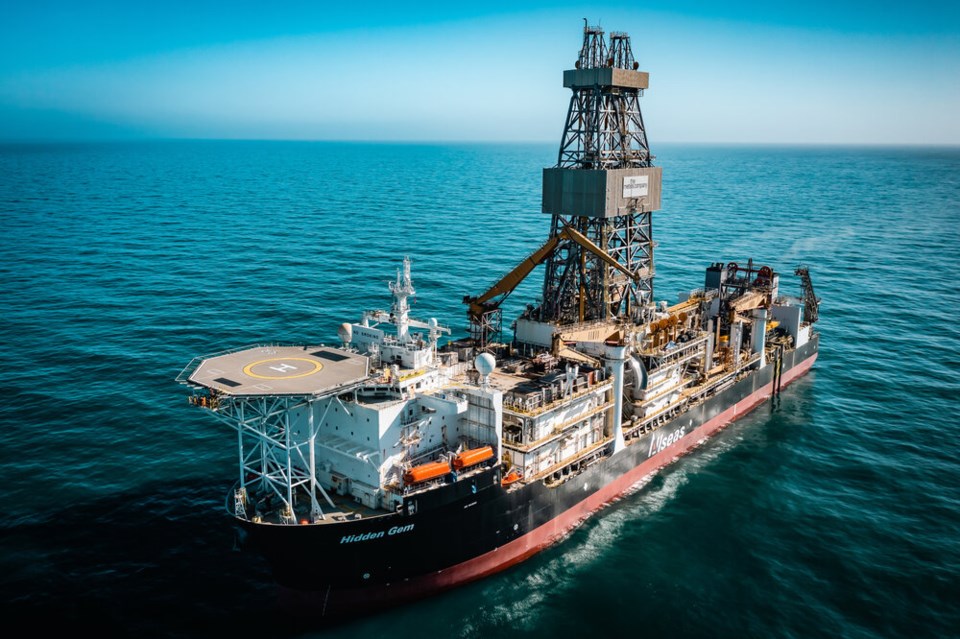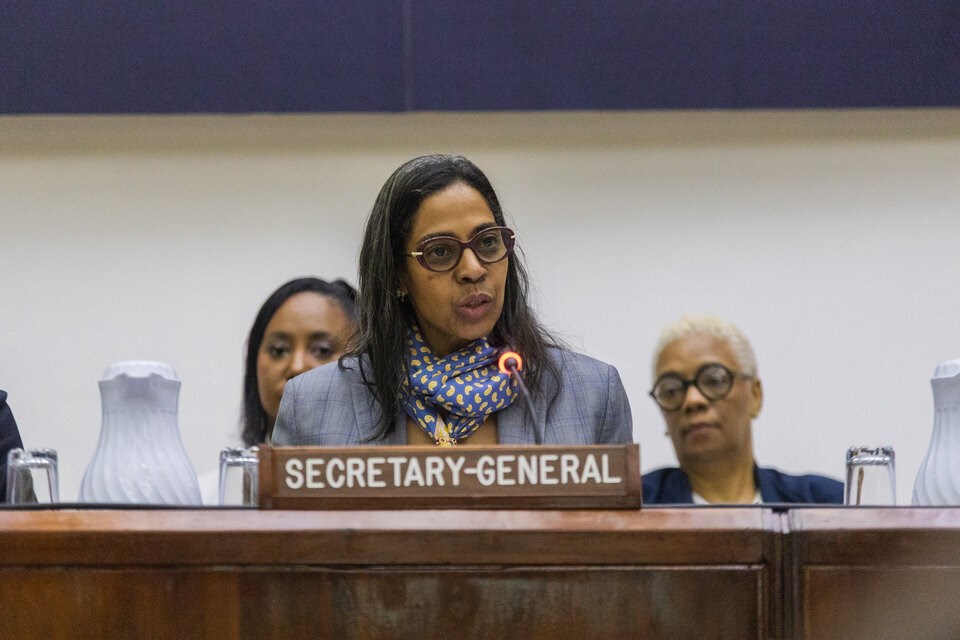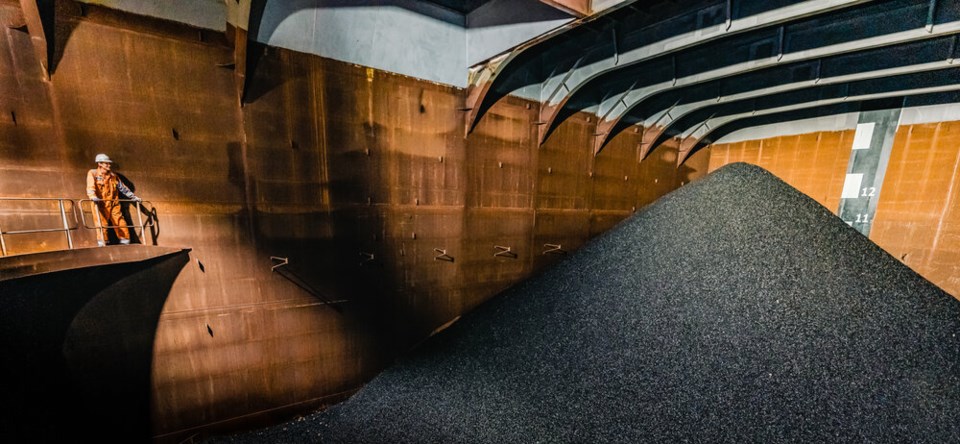A Vancouver-based company said it is seeking approval under United States law to mine several deposits in the Pacific Ocean — a move that could set up a collision with a United Nations body that governs who can exploit resources deep under the sea.
The Metals Company stated it would pursue regulatory approval under the U.S. Deep Seabed Hard Mineral Resources Act to mine two deposits several kilometres below the ocean's surface between Hawaii and Mexico, according to a March 27 filing with the U.S. Securities Commission (SEC).
The company said it believes U.S. regulations offer a “clear and predictable route” to secure permits to mine in international waters. The strategy, it warned, also came with the risk of “political instability” as it came into conflict with the International Seabed Authority (ISA) — a little known international body set up under the United Nations Convention on the Law of the Sea.
The announcement came as the ISA deliberated in Kingston, Jamaica, over whether to approve The Metal Company's application for mining.
A day after the SEC filing, ISA Secretary-General Leticia Carvalho released a statement expressing “deep concern” that the company was attempting to circumvent the UN body’s exclusive mandate to regulate commercial exploitation of deep sea resources.
Carvalho said the ISA was the “only universally recognized legitimate framework” to oversee the commercial exploration and exploitation of deep sea resources — a “Common Heritage of Humankind,” as she described it.
“Any unilateral action would constitute a violation of international law” and directly undermine the fundamental principles of multilateralism, Carvalho said.

Andy Whitmore, a finance advocacy officer for the Deep Sea Mining Campaign, described The Metals Company move to seek U.S. approval as “an attempt to circumvent international customary law and sidestep global scrutiny.”
“This is a company floundering under pressure and trying to buy time,” Whitmore said in an emailed statement. “[The Metal Company’s] last-minute pivot to the U.S. system is a red flag — one driven by investor panic, financial stress, and a complete disregard for multilateralism.”
On Monday, The Metals Company CEO Gerard Barron slammed Carvalho, the ISA and member states for bowing to a faction of states allied with environmental groups who see the deep sea mining industry as their “last green trophy.”
While the ISA and member states reaffirm their commitment to multilateralism in public, Barron said “many of them acknowledged a stark reality in private: commercial industry is not welcome at the ISA.”
Countdown to deep sea mining delayed
In 2021, The Metals Company partnered with the Pacific island nation of Nauru to submit an application to the ISA that would allow it to mine polymetallic nodule deposits scattered across a deep sea abyssal plain.
That triggered a two-year countdown in which the international body was required to write the rules of the road for deep sea mining. But that process has since been extended. Draft exploitation regulations were released in February 2024, and both Nauru and The Metals Company hoped the ISA would take up their application this month.
Meanwhile, the company said it made inroads with U.S. investors and lawmakers. In April 2024, the company’s board added Steve Jurvetson, an Silicon Valley investor known for backing companies like Tesla, SpaceX and Commonwealth Fusion Systems.
In September, Barron testified before the U.S. House of Representatives on the potential of seafloor metals to wean the U.S. defence sector off Chinese-dominated supply chains. And by December, then-U.S. President Joe Biden signed a law calling for financial support from the U.S. Department of Defence to assess the feasibility of domestically processing the metal nodules.

Back in Jamaica, however, international negotiations to approve the company’s mining permit applications have faced hurdles. Nauru formally requested the ISA take up the permit application this month. But Chile’s ISA delegates strongly opposed the proposed agenda item, “ensuring uncertainty remained,” Barron said Monday.
When the Council of the ISA wrapped up their thirtieth session last week, it noted in a press release that “significant progress has been made” but that some issues “require further deliberation.”
Meanwhile, Barron said the United States — which has not ratified the UN Convention on the Law of the Sea — has had a fully developed regulatory regime to allow U.S. citizens to pursue the commercial mining of deep sea metals since 1989.
“It’s a regulator willing to engage with the applicants and give their application a fair hearing,” said the CEO.
In its SEC filing, The Metals Company said that it is seeking permit applications through U.S. law as part of agreements with two companies — Nauru Ocean Resources Inc. and Tonga Offshore Mining Limited — and with sponsorships from the governments of Nauru and Tonga.
The company said it is in “the initial planning stages of this strategy” and that “there are no assurances” the strategy will work “in a timely manner, or at all.”
On Monday, a Reuters report cited two people with knowledge that U.S. President Donald Trump was weighing an executive order that would allow companies to bypass the United Nations seabed authority.
Catherine Coumans, the Asia-Pacific program coordinator for Mining Watch Canada, said she suspects the order could come as early as this week.
“The way I see it, a rogue company found a rogue administration to work with,” Coumans said.

'A battery in a rock'
Through it all, The Metals Company has been actively carrying out exploratory mining expeditions to the Pacific Ocean’s Clarrion-Clipperton Zone (CCZ), an area where polymetallic nodules were discovered by British explorers more than 120 years ago.
Often the size of a potato, the nodules form layer by layer over millions of years as dissolved metals precipitate out of seawater around a sunken shark tooth, fossil or shard of rock.
The company says the metals — which include nickel, copper, cobalt and manganese — represent "a battery in a rock" that could provide a stable supply of metals to feed an electric vehicle fleet equivalent to all the cars currently on the road in the United States.
The company is looking to mine the deep sea with robotic vehicles that suck up the nodules off the ocean floor in a process Barron has claimed will be less damaging than land-based mining.
In the past, collecting and raising the metals from 4,000 metres under the sea has proven technically challenging and too expensive to conduct commercially. The Metals Company says its latest deep sea trial shows its technology works.
The Metals Company has successfully deployed its treaded vehicle to CCZ, sucking thousands of tonnes of nodules up a series of pipes to a mother ship.
And last month, it announced that its partner, Pacific Metals Co. Ltd., had successfully smelted nodules collected during exploratory missions into 35 tonnes of nickel-copper alloy and 320 tonnes of silicate products at a facility in Hachinohe, Japan.
Opposition to deep sea mining mounts
As The Metals Company has intensified its lobbying and engineering work, opposition to its plans has grown.
Over the last three years, 32 countries have publicly opposed rapid development of deep sea mining.
French President Emmanuel Macron has called for the practice to be banned — a country, that along with its dependents, has the largest exclusive economic zone in the world.
Some, like Canada and the United Kingdom, have called for a moratorium on the practice. A long list of others have supported a precautionary pause on deep sea mining.
Political leaders have cited scientists and a coalition of opponents who say mining the deep sea threatens to disturb an ecosystem and ocean carbon pump whose workings are little known to humanity.
In 2023, three advocacy groups claimed that The Metals Company appeared to be caught violating its protocols after two videos were leaked purporting to show waste sediment getting dumped into the Pacific Ocean during the expedition.
At the time, The Metals Company confirmed the leaked videos captured an incident at sea in October 2022. A surge of water had overwhelmed a machine that separates the deep sea nodules from sediment, known as a "cyclone separator," the company said. It described the incident as "a minor overflow.”
But opponents warned the incident was a sign that mining the deep sea is fraught with risk and uncertainties.
Based in Vancouver, @themetalsco is looking to be the first to commercially mine the deep sea in a move it says will power an EV revolution.
— Stefan Labbé (@StefanLabbe) January 11, 2023
Today, scientists aboard the company's ships leaked videos of deep sea sediment overflowing into the sea. pic.twitter.com/hWgvR7mFfQ
To date, the ISA not given out a commercial permit to mine the deep sea. It’s not clear what environmental parameters may need to be measured to eventually satisfy an ISA contract, The Metals Company said in its latest SEC filing.
The filing acknowledges that the collection of nodules is “certain to disturb wildlife” and “may impact ecosystem function.”
The deep water environment also makes scientific monitoring difficult.
As a result, the company says it may not be possible to conclude that collecting the metals from the ocean floor causes any less harm to global biodiversity than land-based mining does.
As the filing put it, the impact to biodiversity “may never be, completely and definitively known.”





